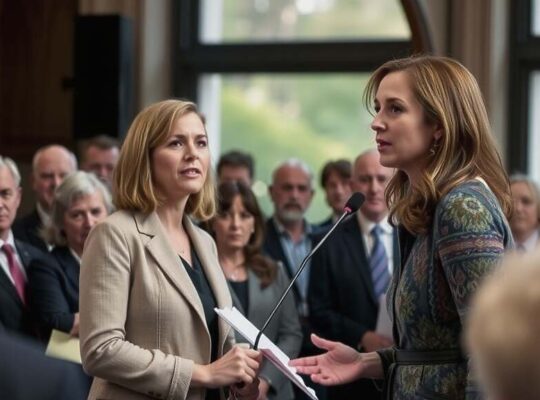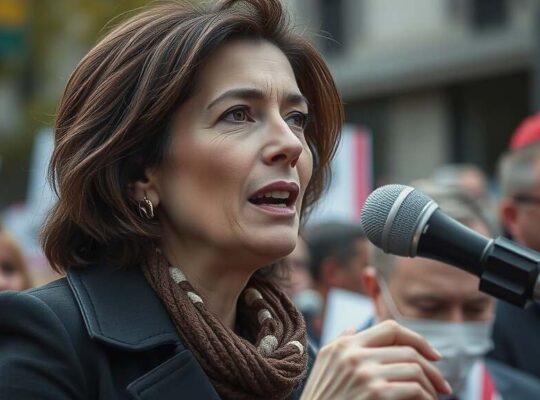The Alternative for Germany (AfD) has experienced a slight retraction in recent polling data, marking the first time in weeks that its momentum has demonstrably slowed. The latest “Trendbarometer” survey, commissioned by RTL and n-tv and conducted by Forsa institute, places the AfD at 26 percent, a slight decrease of one percentage point. Though the party remains ahead of the Christian Democratic Union (CDU) – which stands at 24 percent – this represents a step down from its recent record highs. The dip raises questions about the sustainability of the AfD’s surge and whether underlying anxieties amongst the electorate are beginning to shift.
Meanwhile, the Left party has registered a modest gain, rising one point to 12 percent, signaling a possible realignment within the opposition landscape. The Green party remains stable at 12 percent. The Social Democratic Party (SPD) languishes at 13 percent, while the recently established BSW party maintains its support at 4 percent and the Free Democratic Party (FDP) holds steady at 3 percent, along with the “Other” category at 6 percent. The overall lack of significant movement across the political spectrum underscores a sense of voter fatigue and a potential difficulty in articulating compelling alternatives.
The survey results paint a particularly bleak picture for CDU leader Friedrich Merz, whose approval rating has plummeted to a new low of 26 percent. This continued downward trend highlights the challenges facing the CDU as it struggles to regain its traditional voter base and offer a convincing response to the AfD’s messaging. The erosion of confidence in Merz’s leadership is likely to fuel internal debate and potentially trigger renewed calls for a change in strategy.
Adding to the atmosphere of uncertainty, the survey reveals a pervasive pessimism regarding the future of the German economy. A staggering 64 percent of respondents anticipate a worsening economic situation, the worst reading since the tumultuous years of the “traffic light” coalition government. This widespread apprehension reflects ongoing anxieties about inflation, energy prices and global economic instability. Only 16 percent express optimism regarding economic improvement, while 19 percent foresee no change.
The continuing dominance of geopolitical concerns is readily apparent in the survey’s findings, with the war in Ukraine remaining the top priority for 48 percent of respondents. The performance of the federal government and the escalating situation in the Middle East also remain significant concerns, registering at 34 and 31 percent respectively. These findings underscore the profound impact of global events on the domestic political agenda and highlight the difficult balancing act facing policymakers as they attempt to address both short-term crises and long-term structural challenges.
The data was collected by Forsa institute between September 30th and October 6th, 2025, based on a sample of 2,001 respondents.







